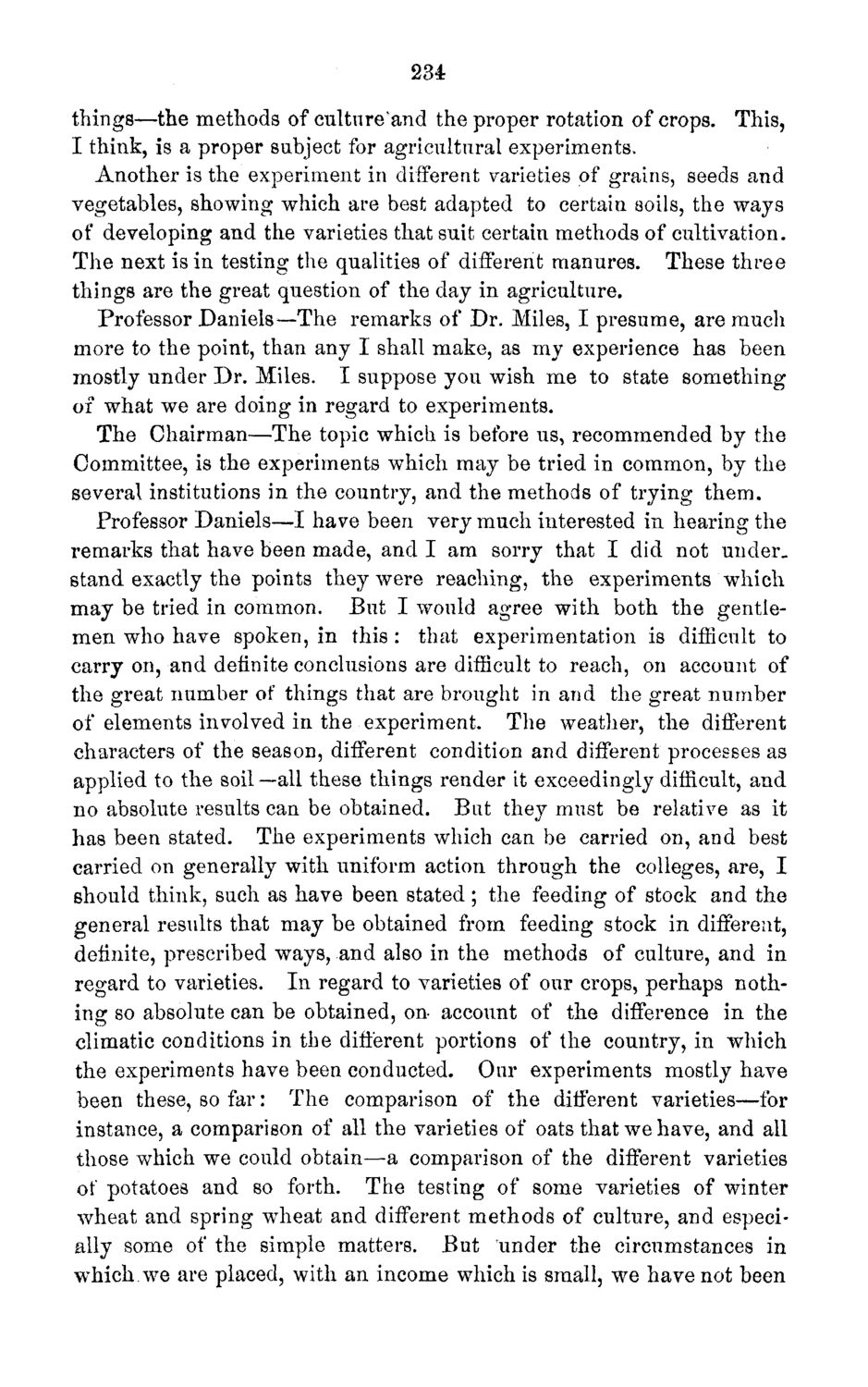| |
| |
Caption: Board of Trustees Minutes - 1871
This is a reduced-resolution page image for fast online browsing.

EXTRACTED TEXT FROM PAGE:
234: things—the methods of culture'and the proper rotation of crops. This, I think, is a proper subject for agricultural experiments. Another is the experiment in different varieties of grains, seeds and vegetables, showing which are best adapted to certain soils, the ways of developing and the varieties that suit certain methods of cultivation. The next is in testing the qualities of different manures. These three things are the great question of the day in agriculture. Professor Daniels—The remarks of Dr. Miles, I presume, are much more to the point, than any I shall make, as my experience has been mostly under Dr. Miles. I suppose you wish me to state something of what we are doing in regard to experiments. The Chairman—The topic which is before us, recommended by the Committee, is the experiments which may be tried in common, by the several institutions in the country, and the methods of trying them. Professor Daniels—I have been very much interested in hearing the remarks that have been made, and I am sorry that I did not under, stand exactly the points they were reaching, the experiments which may be tried in common. But I would agree with both the gentlemen who have spoken, in this: that experimentation is difficult to carry on, and definite conclusions are difficult to reach, on account of the great number of things that are brought in and the great number of elements involved in the experiment. The weather, the different characters of the season, different condition and different processes as applied to the soil —all these things render it exceedingly difficult, and no absolute results can be obtained. Bat they must be relative as it has been stated. The experiments which can be carried on, and best carried on generally with uniform action through the colleges, are, I should think, such as have been stated; the feeding of stock and the general results that may be obtained from feeding stock in different, definite, prescribed ways, and also in the methods of culture, and in regard to varieties. In regard to varieties of our crops, perhaps nothing so absolute can be obtained, on- account of the difference in the climatic conditions in the different portions of the country, in which the experiments have been conducted. Our experiments mostly have been these, so far: The comparison of the different varieties—for instance, a comparison of all the varieties of oats that we have, and all those which we could obtain—a comparison of the different varieties of potatoes and so forth. The testing of some varieties of winter wheat and spring wheat and different methods of culture, and especially some of the simple matters. But under the circumstances in which we are placed, with an income which is small, we have not been
| |